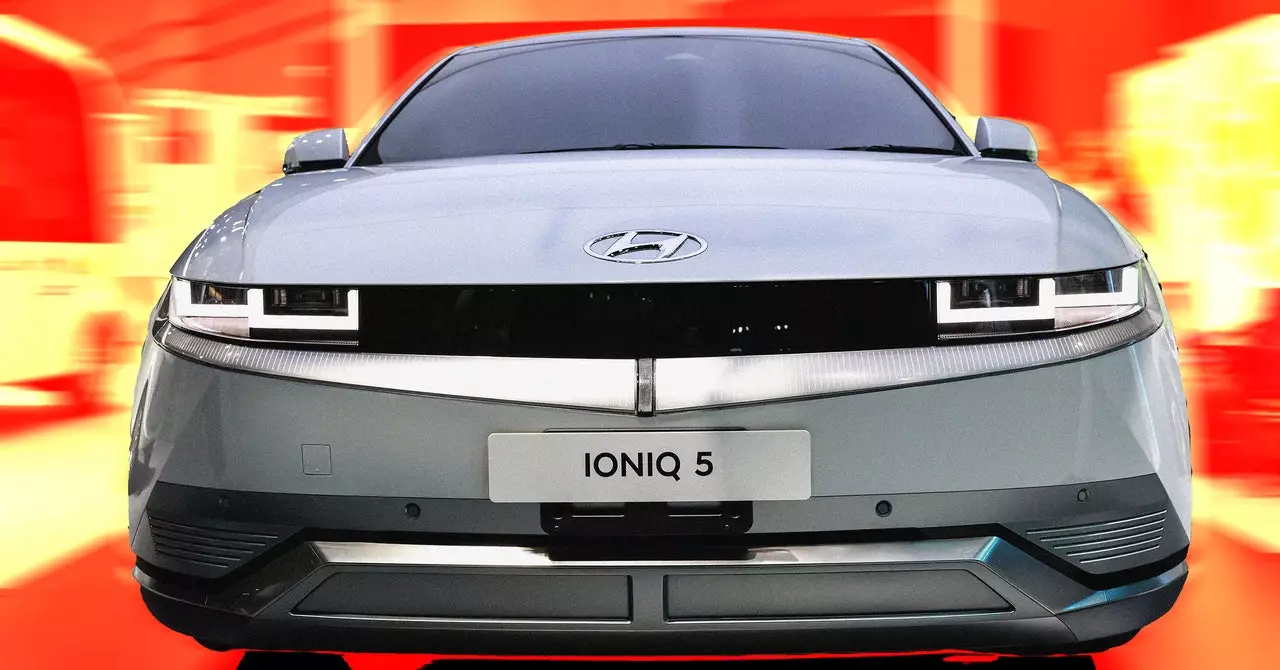The recent announcement of Waymo’s partnership with South Korean automobile manufacturer Hyundai marks a significant turning point in the realm of autonomous driving technology. Waymo, recognized as a leader in self-driving systems, is set to integrate its groundbreaking technology into a fleet of modified Hyundai Ioniq 5 electric vehicles, aiming for a late 2025 launch in its autonomous ride-hailing service. This collaboration not only symbolizes a bold step toward the widespread adoption of self-driving cars but also highlights the increasing integration of technology and the automotive industry to reshape transport as we know it.
Hyundai’s involvement with Waymo represents the company’s strategic intent to remain competitive in an evolving automotive landscape increasingly characterized by automation and innovation. José Muñoz, Hyundai’s President and COO, noted that this agreement is merely the beginning of a potentially vast partnership. With the possibility of future collaborations that extend beyond self-driving technology, this initiative positions Hyundai as a forward-thinking player in the electric vehicle (EV) market. The anticipated modifications to the Ioniq 5 vehicles suggest that the company is open to marrying its automotive prowess with advanced technological solutions, providing consumers with an experience that merges quality engineering with cutting-edge tech.
However, as Waymo forges ahead with its partnership with Hyundai, it must navigate the complexities of global automotive market dynamics, particularly concerning the United States’ stance on international trade. The growing influence of Chinese automakers, particularly evident in electric vehicle manufacturing, has created significant unease among Western manufacturers. Recent tariffs and restrictions targeting Chinese imports highlight an ongoing geopolitical struggle that could redefine supply chains and international partnerships.
In recent months, the U.S. government has ramped up efforts to alter trade policies, increasing tariffs on Chinese-made EVs and hardware used in autonomous technologies. These measures are ostensibly aimed at preserving national security and bolstering domestic manufacturing. Secretary of Commerce Gina Raimondo’s concerns about the potential vulnerabilities posed by connected vehicles stand at the core of this narrative; the fear is that Chinese technologies could be used to compromise or manipulate vehicles operating on American roads.
Intriguingly, while Waymo is spearheading its collaboration with Hyundai, it also maintains an ongoing relationship with Zeekr, a subsidiary under Chinese automaker Geely. As new models of dedicated autonomous minivans are being developed for Waymo, these diverse partnerships suggest a delicate balancing act. Waymo must assure stakeholders that its technology is insulated from geopolitical tensions while harnessing the innovation capabilities offered by these varying partnerships.
The Zeekr robotaxi, designed with specific operational needs in mind, shines a light on Waymo’s adaptability and commitment to scaling its self-driving capabilities. While the vehicle has yet to join public ride-hailing services, its early-stage testing in a metropolitan area like San Francisco is a testament to Waymo’s mission to create a reliable and efficient urban mobility solution.
Waymo’s insistence on keeping its autonomous technologies devoid of any dependency on its Chinese partners emphasizes the company’s focus on maintaining control over its operations and technological infrastructure. The assurance that personnel based in the U.S. are solely responsible for integrating autonomous features into vehicles reflects an attempt to alleviate concerns heading into a new era of autonomous mobility.
The Waymo-Hyundai collaboration and the potential rollout of their self-driving vehicles mark a crucial moment in the continuous evolution of the automotive industry. The unfolding narrative promises to deliver not only innovation in self-driving technology but also advances in how we navigate the ethical and logistical challenges posed by a global market poised for rapid transformation. As industries converge and partnerships form, the future of transport holds unprecedented possibilities, and companies like Waymo and Hyundai will be at the forefront of this revolution.

